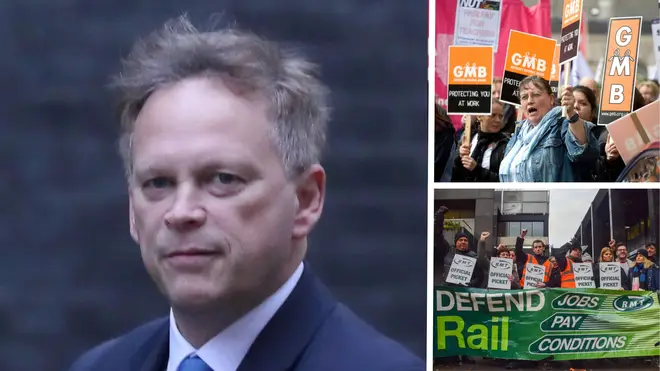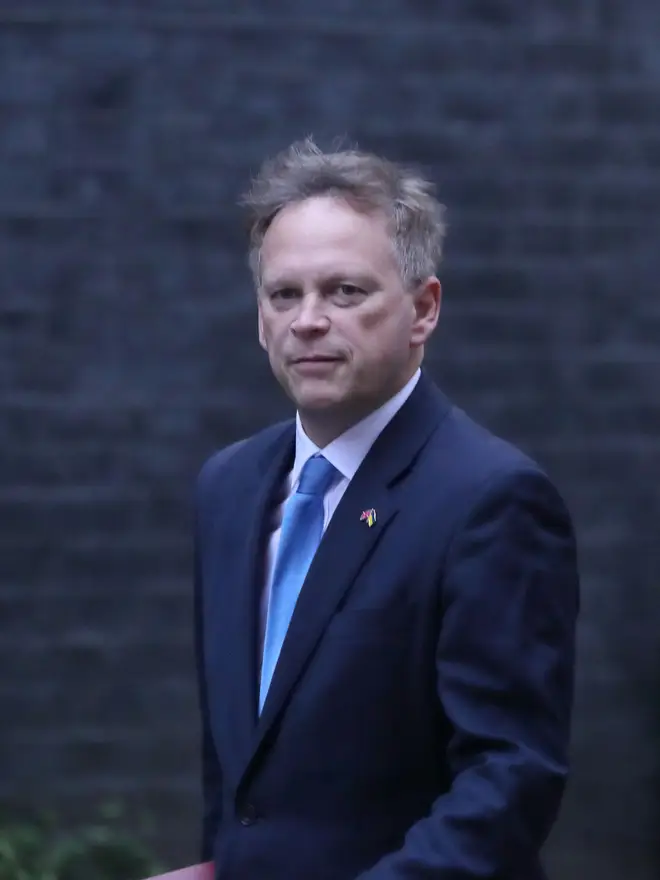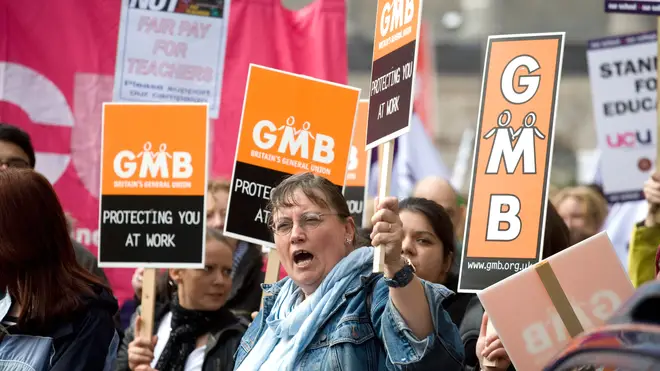
Oli Dugmore 4am - 7am
5 January 2023, 15:29 | Updated: 5 January 2023, 15:36

The government is introducing anti-strike legislation to "ensure a basic level of service" during walkouts.
A bill is set to be introduced in Parliament in the coming weeks, with minimum safety levels being set for fire, ambulance and rail services.
Business Secretary Grant Shapps said that the government would introduce the bill "quickly", adding that he saw no reason why the legislation would need to be obstructed.
For the other sectors covered in the bill - including health services, education and border security - voluntary agreements are expected to be reached.
Minimum safety levels will only be introduced for them should voluntary positions not be agreed, the government said.
Mr Shapps suggested that he hoped the government would never need to enforce minimum safety levels during industrial action for some sectors.
Asked whether the plan was "political theatre" that will arrive too late to deal with the current wave of strike action, he said: "I'd rather we never have to go down this route.
"In the most recent strikes, for example, with ambulances, you had the Royal College of Nursing, who in the nurses strike did agree at a national level what the minimum safety level would be but with the ambulances that was left to a postcode lottery effectively, and I think it's that that's unacceptable.
"So what I'm hoping is that across the economy, because this would apply in lots of different areas of the economy, I'm hoping actually that unions and the employers can get together and do sensible things in order to guarantee of minimum safety or service level in each different area."
Read more: Amazon workers in UK set to strike for first time ever in dispute over pay

Mr Shapps previously said in a statement: "We hugely value the work of our public services and we’re reaching out to unions to have an honest conversation on pay, conditions and reform.
"Industrial action is disruptive for everyone – from people relying on essential services to get to work or care for their family to hard-working business owners whose sales suffer. It also costs those striking at a time when family budgets are tight.
"As well as protecting the freedom to strike, the government must also protect life and livelihoods.
"While we hope that voluntary agreements can continue to be made in most cases, introducing minimum safety levels – the minimum levels of service we expect to be provided – will restore the balance between those seeking to strike and protecting the public from disproportionate disruption."

The government has invited trade unions to have "honest, constructive conversations" over disputes over pay and working conditions in a bid to avoid ongoing industrial action.
However, unions have already hit back, with GMB saying the anti-strike legislation is a "desperate" move.
"This is a desperate act by the government, who are trying anything to divert attention from the chaos they have created from 13 years of failure in our public services," a GMB spokesperson said.
"NHS staff and ambulance workers are on the frontline of this crisis every day, looking after people across the country, and should have the right to stand up for themselves and the health service we all depend on."

Deputy Labour leader Angela Rayner called the minimum service level legislation "unworkable" and said that Labour would oppose the move.
The shadow future of work secretary said: "These proposals are unworkable and unserious from a dead-end government. It's insulting to key workers that Rishi Sunak thinks that threatening teachers and nurses with the sack will end strikes.
"At every stage the government has sought to collapse talks and throw in last minute spanners. Now the Prime Minister is wasting time on shoddy hurdles that even his own Transport Secretary admits won't work.
"Labour is united against this attack on fundamental British freedoms. We will oppose this bill and repeal these restrictions on the right to strike."